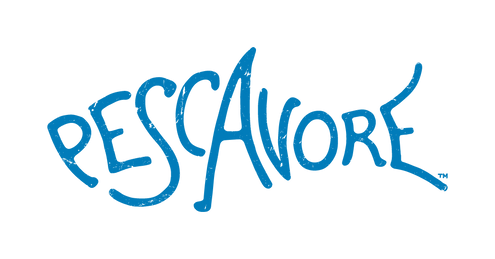The movement for intersectional environmentalism advocates for both the protection of people and the planet while identifying ways in which injustices happening to marginalized communities and the earth, are interconnected. Human injustice takes the form of disproportionate impact due to natural disasters, exposure to pollution, and inadequate access to healthy food. Intersectional environmentalism argues that those who are least responsible for yet most impacted by climate change, deserve a voice in how humankind forms a more equitable relationship with our planet (learn more).
With more than a third of all man-made greenhouse gas emissions generated by food systems (source), solving earth's climate crisis is inextricably connected to fostering healthier and more resilient food supply chains. The natural products industry is largely tasked with finding solutions that rapidly transform and reduce the impacts of the food system. Research shows that dynamic, startup brands with a clear vision and an entrepreneurial mission committed to fulfilling an unmet need are best equipped to unlock market potential in the consumer packaged goods sector. These so-called “insurgent brands” have historically met changing consumer (and in some cases environmental) needs more quickly than major brands (learn more). Put more simply, to solve earth's climate crisis, the food system must change and creative startups are the companies most likely to find success fomenting this change. And yet the natural products industry where these startups thrive remains woefully non-representative and fundamentally lacking in intersectionality. A demographic study conducted by the Natural and Organic Industry Benchmarking Survey showed that while the movement for women in leadership positions has gained traction – with women now representing 43% of leadership positions and 32% of board positions - representation for non-white business leaders languishes far behind. Across ALL non-white demographics, business leaders represent a mere 16%; black and indigenous leaders having the least representation with a combined 3% share (source). Diverse leaders are less likely to access capital, trade, PR & media coverage and network access (source) which are all critical success factors for emerging brands. Diverse leaders are also more commonly victims of unethical business practices, purposeful exclusion from trade organizations, and perhaps most disturbingly, open and often shameless infringement of intellectual capital and brand ownership that goes without reprimand (example).
It’s time for more than introspection. And it’s time that diversity and inclusion didn’t just mean diverse photographs for advertising or hiring low level staff people. Our constituency, the consumer, deserves more. Segmentation studies by New Hope suggest 27% of the natural and organic products market consumer base is made up of BIPOC people (source). As millennial and Gen Z purchasing power grows, so too will that share of the market. The most recent census reflects a rapidly diversifying America (source). Gen Z is expected to make up 20.2% of the US population by 2022, or 68.2 million tweens, teens, and young adults ages 9 to 24. As the third-largest cohort, Gen Z is the most racially, ethnically, and sexually diverse generation in history (source). They are also the most well-educated, and environmentally conscious (source), two demographic indeces with historically high engagement with natural, organic and specialty foods. We have seen a majority of demand from diverse and young audiences in the real world where Pescavore customers are looking for better, transparent and ethical options from real and diverse people, not corporations. Our inclusive approach is unlocking revenue and excitement in a sector that the seafood industry has historically struggled to engage (source). To expand consumer base while delivering product/market fit that unlocks new market opportunity - a representative body, and one with diverse leadership up the org chart, must be part of the fabric of the brand, the products, and the culture.
The natural products industry stakes its claim in creating a better world so it accordingly bears a responsibility to deliver equal access and opportunity to diverse leaders and intersectional brands. This access to opportunity should not only live only within separate trade organizations, comprised mostly or exclusively of BIPOC people. Brown vs. the Board of Education and other seminal cases from the Civil Rights movement have already taught us that separate is not equal. Leading from the front means integrated, diverse teams in gender, orientation, ethnicity, age, and professional background. To deliver its promise, leaders within the Natural Foods Industry including decision makers and those with the power to create the future must unlearn systematic racism, acknowledge disparity, and amplify BIPOC leaders. Not only is representation and inclusion rational and just, it also delivers the types of dividends that are essential to maximizing value and profits (source):
Diversity Delivers Dividends
-
Companies with organizational diversity yield 21% higher financial performance and 27% higher likelihood of long-term value creation, per McKinsey and Co.’s “Delivering Growth Through Diversity."
-
Inclusive organizations enjoy 300% revenue growth, according to “A Great Place to Work for All" by Michael C Bush and the Great Place to Work Research Team.
-
Diverse teams are more likely to question assumptions, remain objective and yield more dynamic innovation—also from "A Great Place to Work for All."
-
There is a 44% jump in average share price for companies with diverse boards vs. 13% with no diversity, according to “No More All-White, All Male Boards” by Aimee Picche.
